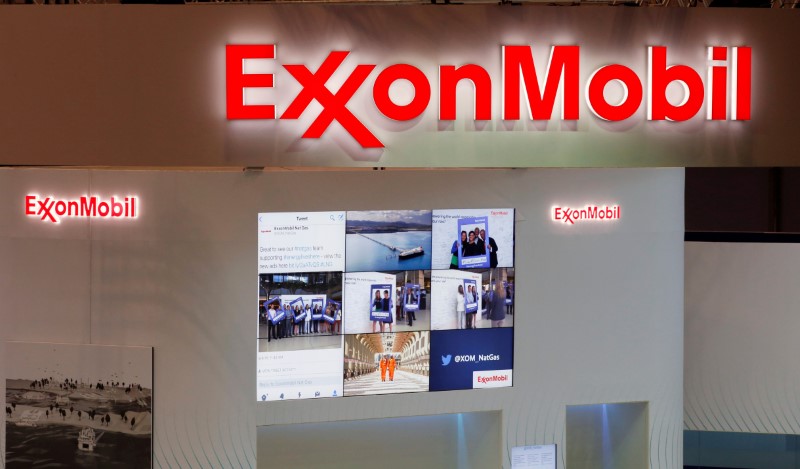By Tim McLaughlin
BOSTON (Reuters) - One of the most aggressive state-run cash pools that regularly trounces the returns of peers and money-market funds with big bets on short-term corporate debt is no longer eager to buy some of the blue-chip names that produce those juicy yields.
Before the coronavirus pandemic reverberated around the globe and created a financial panic on Wall Street, the Utah Public Treasurers’ Investment Fund had about 95% of its $17.5 billion in assets invested in corporate debt and commercial paper issued by blue-chip companies. ExxonMobil Corp (N:XOM), hard hit by a price war between Saudi Arabia and Russia, accounted for about $638 million, or 3.6% of the fund's assets. Chevron Corp's (N:CVX) total was about $8 million, state disclosures show.
Graphic: Oil demand slumps in first quarter 2020, https://fingfx.thomsonreuters.com/gfx/ce/7/9010/8991/oil%20slump.png
"We will let those positions roll off," Utah Treasurer David Damschen said Wednesday in an email. "There are no plans to buy into the energy sector at present."
Damschen and other state treasurers said they anticipate increased cash demands from their investors, which include small towns and library districts, for example.
"The primary concern right now is the unknown length and magnitude of the economic impact to the household and business sectors caused by the virus, the office of Washington state Treasurer Duane Davidson said. "This is different than the (previous) financial crisis where the primary concern was the soundness of the financial system."
The U.S. Federal Reserve this week dusted off its playbook from the 2008-2009 financial crisis to prevent the corporate debt market from seizing up. The Fed took the extraordinary step of saying it would prop up the corporate debt market by buying commercial paper directly from banks and large corporations and dish out short-term cash in return. [nL1N2BA0PK]
With nearly $300 billion, local government investment pools (LGIPs) across the United States invest the idle taxpayer dollars collected for school districts, small towns and cities in U.S. Treasuries, municipal bonds, bank certificates of deposit and corporates. The pools provide economies of scale that can produce significant savings in money management fees to participants.
Another goal is to stretch taxpayer dollars by generating more income than participants would in money-market funds. New Mexico's $1 billion LGIP has doubled in size over the past five years, with yields that are 15 to 20 basis points more than a similarly structured money fund.
Many of the pools follow the same investment rules of money-market funds. Others, like the Utah fund and the Oregon Short-Term Fund, have mandates that allow them to take more risk by allocating a higher percentage of assets toward corporate issues.
Over the past several years, corporate debt has juiced the Utah fund's returns, which have ranked the highest or among the highest in the country. In 2019, for example, the fund's average yield of 2.76% was No. 1 among LGIPs, according to research firm Tracs Financial. By contrast, the average money-market fund yield was 1.86%, according to Refinitiv Lipper data.
Though highly rated, corporate debt carries more credit risk, and pays higher yields, than bonds issued by the U.S. government and its various agencies. The current yield on Exxon AA-rated commercial paper that matures in early September is 1.4%, compared to 0.08% on a benchmark 6-month U.S. Treasury note (US6MT=RR).
Pete Crane, president of money-market research firm Crane Data, said LGIPs typically are stalwarts in the corporate debt market, though not the biggest buyers.
"They are a lot less headline sensitive, and they are much more hungry for yield," Crane said.

